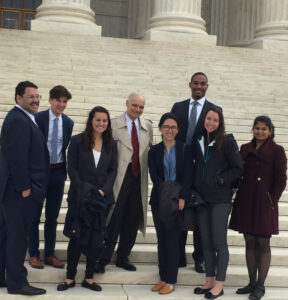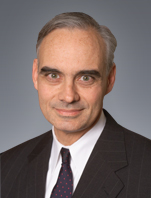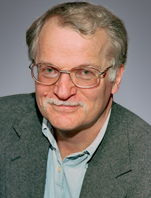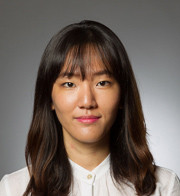This website uses cookies
We use cookies to ensure that we give you the best experience on our website. If you continue to use this site we will assume that you are happy with it.
If you’re going before the Supreme Court, any edge helps. Luckily, when Professor James W. Dabney ’79 was preparing his case as lead counsel for the petitioner in TC Heartland LLC v. Kraft Foods Group Brands LLC and needed some federal civil procedure experts, he could just turn to his neighbors in Myron Taylor Hall.

Professor Dabney and Cornell Law students on Supreme Court steps after ruling.
The arguments that Dabney brought to bear in TC Heartland were tested and refined before a moot court held at Cornell on March 20, 2017, just a week before the Supreme Court heard oral arguments in the case. The Law School collaboration bore fruit: the Justices ruled 8-0 in favor of TC Heartland LLC, the Indiana-based food company that Dabney’s legal team represented.
“It really was an exceptional opportunity for academe and practice to fuse,” said Dabney, an adjunct professor at Cornell Law School and co-head of Hughes Hubbard & Reed LLP’s intellectual property practice group.
TC Heartland boiled down to a question of venue. For the two-and-a-half decades prior to the Supreme Court’s May 2017 decision, companies could be sued for patent infringement wherever they did business-in the modern world, basically anywhere-under a precedent stemming from a 1990 decision of the U.S. Court of Appeals for the Federal Circuit, a specialized court that handles patent appeals. However, in its opinion in TC Heartland, the Supreme Court endorsed Dabney’s argument that the Federal Circuit had erred in its interpretation of the patent venue statute for more than twenty-six years and had wrongly denied a petition by TC Heartland to move the venue of a lawsuit filed against the company to Indiana. The high court found that the Federal Circuit had improperly failed to follow the Supreme Court precedent set in 1957 by Fourco Glass Co. v. Transmirra Products Corp., which had held that a phrase in a 1948 patent law defining a proper venue for patent lawsuits as “the judicial district where the defendant resides” should be interpreted more narrowly as meaning the district where the defendant is domiciled.

Professor James Dabney ’79
As Dabney was preparing briefs for TC Heartland, he got to talking about the case with Professor Kevin M. Clermont. They had a long history together-before becoming colleagues, Clermont had actually taught Dabney when he was attending Cornell as a law student in the late 1970s. One thing led to another, and soon Dabney was honing his arguments before a moot court they set up in Professor Oscar Liivak’s patent law seminar.
“I couldn’t think of a more productive, a more valuable moot court experience on a venue issue than to be grilled by these leading academic professors of federal civil procedure,” Dabney said. “I received questions on that Monday that I found much more difficult than any of the questions I received from the actual Justices.”
“If you read the oral argument transcript that I made a week later compared to how I started out in front of the professors, there was a big change,” Dabney added.

Professor Kevin M. Clermont
Besides Clermont and Liivak, the moot also included Michael C. Dorf, the Robert S. Stevens Professor of Law and an expert on federal courts; and Zachary D. Clopton, Assistant Professor of Law, who like Clermont specializes in federal civil procedure. According to Clermont, the diverse expertise the Cornell professors brought to bear was vital. “This case really was a law teacher’s kind of case,” he said. “You try to explain this case even to other law teachers and it takes so long to get them up to speed as to what was at stake, and what the relevant issues were. But, this patent paradox was right up the proceduralist’s alley.”
The legal doctrine is obscure, but it had major consequences for patent litigation. “The broad reading of the statute that had been applied for the last twenty-five years had resulted in incredible forum-shopping, where plaintiffs’ lawyers were bringing all these cases in incredibly unfavorable spots for defendants,” said Clermont. “In particular, they were bringing them in the Eastern District of Texas, where the federal court had gone out of its way to make a plaintiff-friendly setting.”
TC Heartland touched on a subject that Dabney has devoted much of the past decade to exploring, both in the courtroom and the classroom: the surprisingly frequent conflicts between the Federal Circuit’s decisions and Supreme Court precedent. Dabney has taught a class on such conflicts at the Law School since 2012.

Hoori Kim ’18
Hoori Kim ’18, was in Dabney’s Conflicts in Patent Law and Practice class last spring, and remembers excitedly reading through the TC Heartland briefs in class as her professor filed them, and watching him present his arguments at the Law School moot. “We got to see from him how real lawyers practice,” she said.
In March, the class trekked down to Washington, D.C., with hopes of watching the oral arguments for TC Heartland. They got unlucky, though; the other case being argued that day, Advocate Health Care Network v. Stapleton, which touched on the financial obligations of religious institutions, had attracted significant attention from legal observers and church groups alike. When the Cornell contingent arrived outside the court, they found that they didn’t have any chance at a seat-some aspiring Supreme Court visitors had been lined up since before dawn. But, said Kim, getting to see Dabney walk out of the courtroom and celebrating with the legal team at the reception thrown afterwards by Hughes Hubbard’s D.C. office had its own appeal.
“It was really interesting to be in the midst of the law changing completely,” she said. “Down the line, someone might look at TC Heartland and say, ‘Ten years ago, this case was decided and that’s why we do things the way we do now.’ We actually saw that happening before our eyes.”
By Ian McGullam